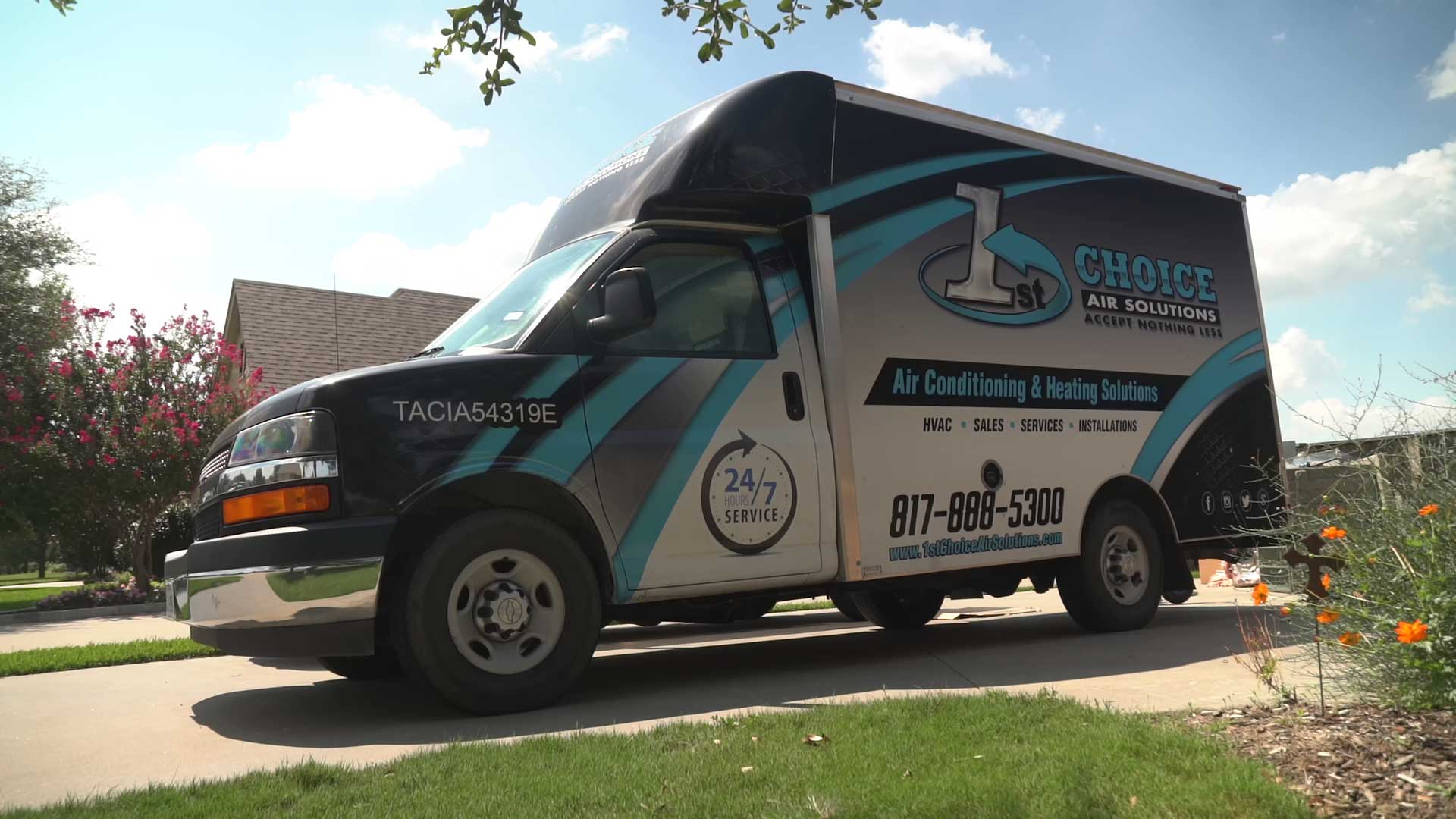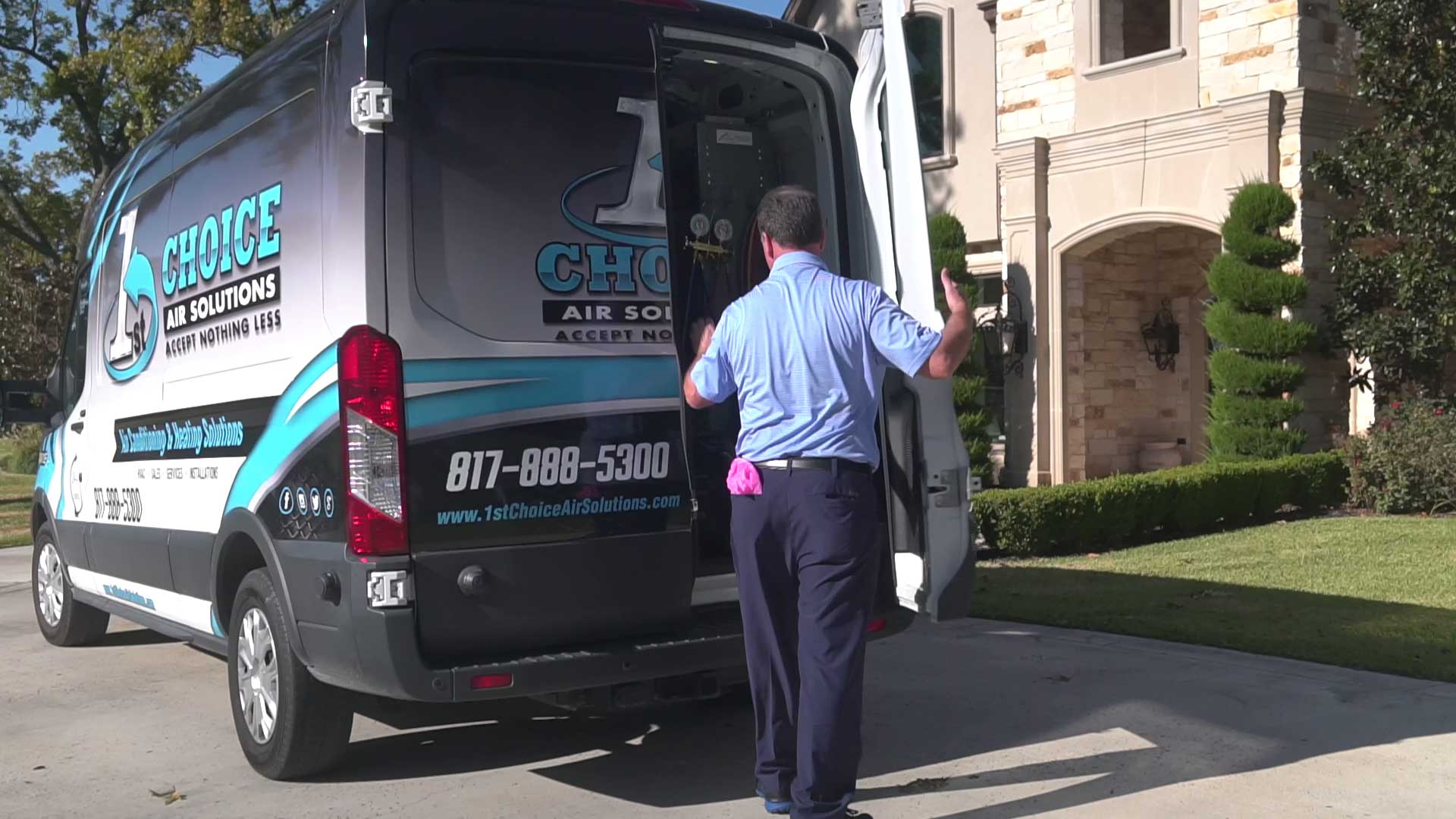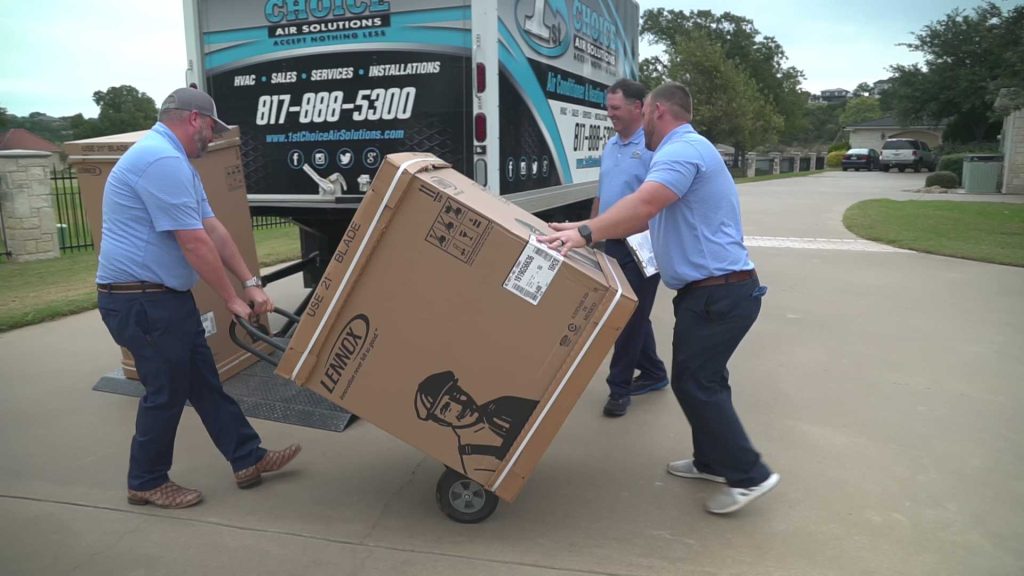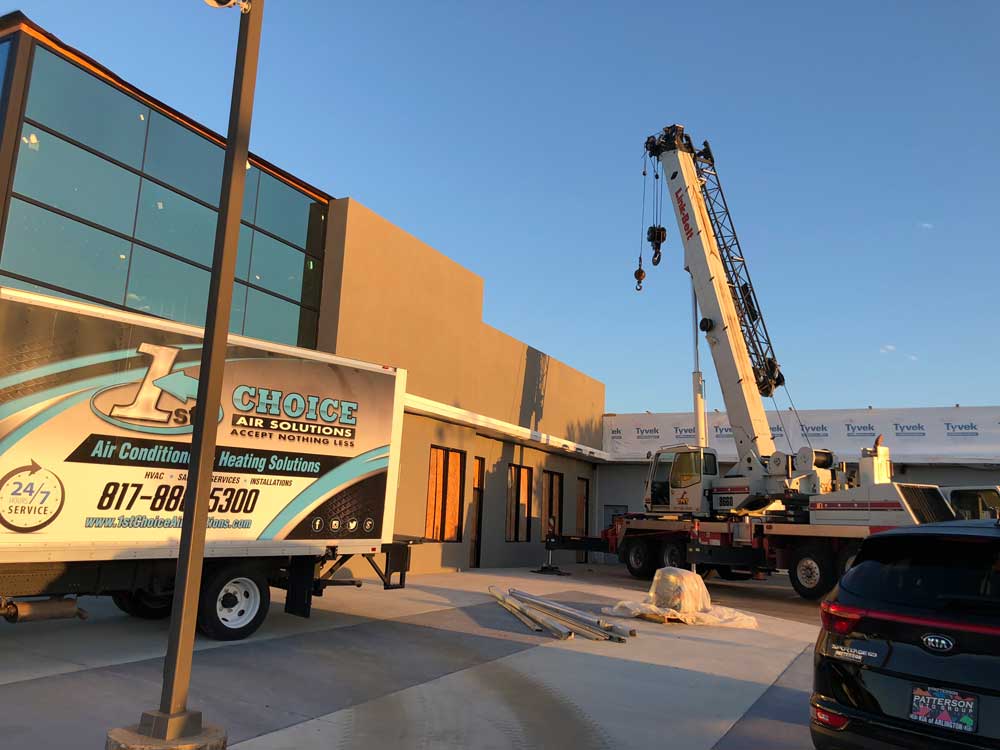Heat Pump Repair & Installation in Rhome, TX
- Money Back Guarantee
- Same-Day Service
- Next Day Installation
- Low/Easy Payments
- Track Your Technician
Expert Heat Pump Repair & Installation Services in Rhome, TX
“Providing Unparalleled Heat Pump Services in Rhome, TX: Experience the Reliability, Efficiency, and Expertise of 1st Choice Plumbing, Heating & Air Solutions. Contact us now for a 24-hour emergency service, guaranteed satisfaction, prompt installation, flexible payment options, and a trusted A+ rating with the BBB.”
Professional Heat Pump Services in Rhome, TX
1st Choice Plumbing, Heating & Air Solutions, a heat pump service provider located in Rhome, TX, offers comprehensive and reliable heat pump repair and installation services to its customers. With a strong commitment to excellence, the business aims to address the specific needs of its clientele by providing expert solutions in a timely and efficient manner. The company’s team of experienced technicians possess a deep understanding of heat pump systems and are equipped with the necessary expertise to diagnose and rectify any issues that may arise. Whether it involves repairing a malfunctioning heat pump or installing a new system, 1st Choice Plumbing, Heating & Air Solutions ensures that all services are carried out with utmost professionalism and precision. By offering these specialized services, the business endeavors to meet the demands of its customers and contribute to their long-term satisfaction and comfort.

Expert Heat Pump Repair & Installation Services in Rhome, TX
When it comes to heat pumps, our expertise sets us apart from the competition. We have a deep understanding of the complexities involved in repairing and installing these systems, allowing us to handle any issue with precision and efficiency. Whether you need minor repairs or a complete installation, our knowledgeable technicians will assess your specific requirements and provide tailored solutions that guarantee long-lasting results.
Why choose 1st Choice Plumbing, Heating & Air Solutions for your heat pump needs? Here are three compelling reasons:
- Reliable Service: Our team consists of trained professionals who are dedicated to providing reliable service that you can trust. We are committed to arriving on time, completing projects within the agreed-upon timeframe, and ensuring that every aspect of our work meets the highest standards.
- Exceptional Quality: At 1st Choice Plumbing, Heating & Air Solutions, we prioritize quality above all else. From utilizing premium materials to employing advanced techniques, we go the extra mile to deliver exceptional craftsmanship in every project we undertake. You can rest assured knowing that your heat pump is in capable hands.
- Flexible Payment Options: We understand that unexpected expenses can be challenging to manage. That’s why we offer flexible payment options designed to suit your budgetary needs. Our aim is to make quality heat pump services accessible without compromising on excellence.
Investing in professional heat pump repair and installation services is crucial for maintaining comfort and energy efficiency in your home or business premises. Trust 1st Choice Plumbing, Heating & Air Solutions for expert solutions tailored specifically for you!
Malfunctioning Heat Pump
One common issue with malfunctioning heat pumps is inadequate heating or cooling. This problem arises when the heat pump fails to generate the appropriate temperature required for a comfortable indoor environment. Homeowners may find themselves shivering during frigid winter nights or sweating profusely on scorching summer days due to their faulty units. Furthermore, a malfunctioning heat pump might produce uneven temperature distribution within the home, allowing certain areas to remain excessively hot or cold while others experience little change.
Another consequence of a malfunctioning heat pump is decreased energy efficiency. As this essential component of HVAC systems struggles to perform optimally, it consumes more energy than necessary to achieve the desired results. Consequently, homeowners face higher utility bills as their malfunctioning unit strains under increased workload demands. Furthermore, reduced energy efficiency contributes to environmental concerns by increasing carbon emissions and thus exacerbating climate change issues.
In addition to these practical inconveniences caused by dysfunctional heat pumps, homeowners often experience frustration and stress due to ongoing maintenance requirements and uncertainty about when their system will fail completely. The constant worry regarding potential breakdowns can disrupt daily routines and create an atmosphere of anxiety within households. Moreover, unexpected expenses associated with frequent repairs or even complete system replacement only serve to compound these worries further.
- Constant fluctuations in temperature can impede productivity.
- Uneven heating or cooling leads to discomfort and affects overall well-being.
- High energy consumption contributes negatively towards sustainability efforts.


Why is Heat Pump Repair & Installation Services Important?
However, like any other mechanical system, heat pumps can experience malfunctions or breakdowns over time due to wear and tear. These issues can significantly impact their performance, resulting in insufficient heating or cooling capabilities, increased energy consumption, and potentially costly repairs if left unattended. Therefore, timely repair and proper installation of heat pumps are crucial to ensure their efficient operation and longevity.
When it comes to repairing or installing a heat pump system, seeking professional services is highly recommended. Certified technicians possess the necessary expertise to diagnose problems accurately, identify potential risks or inefficiencies, and provide effective solutions. They will assess various components such as refrigerant levels, electrical connections, compressor functionality, and airflow distribution to determine the root cause of any malfunctioning or underperformance. Additionally, they can guide customers in choosing the most suitable model for their specific needs when considering installation options.
By entrusting heat pump repair and installation services to experienced professionals like 1st Choice Plumbing, Heating & Air Solutions in Rhome, TX – an A+ rated business with BBB – customers can have peace of mind knowing that their heating and cooling systems are being handled with utmost care by knowledgeable experts. With prompt repairs conducted using high-quality parts along with meticulous installations adhering to industry standards, these services ensure optimal performance from heat pump systems while minimizing future complications.
In conclusion, understanding the significance of reliable heat pump repair and installation services is crucial for maintaining a comfortable indoor environment all year round. By addressing any issues promptly through professional assistance from businesses like 1st Choice Plumbing, Heating & Air Solutions, individuals can ensure the efficient operation and longevity of their heat pump systems. Whether it is for repair or installation purposes, seeking professional services remains a vital step towards achieving optimal heating and cooling performance in residential and commercial settings.
What is the Value of Heat Pump Repair & Installation Services?
Choosing a professional service for heat pump repair and installation can offer significant value in terms of ensuring optimal performance and longevity of the system. By entrusting the expertise of experienced technicians, customers can benefit from:
- Expertise: Professional technicians possess extensive knowledge about various types of heat pumps available in the market. They are well-versed with different models, their specifications, and understand the intricacies involved in repair or installation processes.
- Quality Service: Reputable companies prioritize delivering top-notch customer service by providing prompt response times, adhering to scheduled appointments, and efficiently resolving any issues that may arise during the repair or installation process.
- Reliability: A trusted service provider ensures that all repairs are completed accurately using high-quality parts and components. This guarantees long-lasting results while minimizing future breakdowns or malfunctions.
- Cost-effectiveness: Investing in professional services may seem like an additional expense at first glance; however, it often proves to be cost-effective in the long run. By hiring experts for heat pump repair and installation services, customers can avoid potential mistakes or mishaps that could lead to more expensive repairs down the line.
For instance, consider a scenario where a homeowner attempts to install a new heat pump without expert guidance. Due to lack of knowledge or experience, they inadvertently make critical errors that compromise the unit’s efficiency or even cause damage. As a result, they end up spending more money on additional repairs or replacement parts than if they had initially sought professional assistance.
To ensure uninterrupted comfort and optimal performance of your heat pump, it is crucial to choose a reputable service provider that offers reliable repair and installation services. With their expertise, quality service, reliability, and long-term cost-effectiveness, professional technicians are equipped to handle any heat pump-related issues efficiently and effectively.


Why Opt for Our Services?
We offer next-day installation for added convenience, ensuring that your heating needs are met without unnecessary delay. Understanding the financial concerns of our customers, we provide flexible payment options to accommodate various budgets. Furthermore, our A+ rating from the Better Business Bureau (BBB) instills trust that you are dealing with a reliable and reputable service provider.
The core values that we uphold at 1st Choice Plumbing, Heating & Air Solutions are reliability, efficiency, and expertise – qualities that guarantee you receive top-notch service and solutions to all your heat pump repair and installation needs. Choose us, and rest assured that your heating needs are in capable hands.
Frequently Asked Questions
Our HVAC Services Include:
- AC Coil Cleaning
- AC Compressor Replacement
- Air Handlers
- AC Installation
- AC Maintenance
- AC Repair
- AC Furnace Filter Replacement
- Commercial HVAC
- Ductless Mini Split
- Thermostat Repair & Installation
- Refrigerant Leak Repair
- Smart Home Thermostats
- Furnace Installation
- Furnace Repair
- Heating Maintenance
- Heat Pump Installation
- Heat Pump Repair
- Air Cleaner & Sanitizer Installation
- Air Duct Cleaning
- Dehumidifier
- UV Light Installation
Exploring Rhome, TX
Rhome, situated in Wise County, is one of the fastest-growing areas in the Dallas-Fort Worth metroplex. The city offers a variety of amenities including Family Park, and it’s nearby the popular outdoor spot, the Lyndon B. Johnson National Grassland. For more information, visit the official city website: City of Rhome and the Wise County Chamber of Commerce.
We’ve also extended our services to a broad range of cities, which include, but are not limited to: